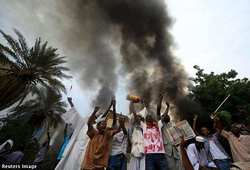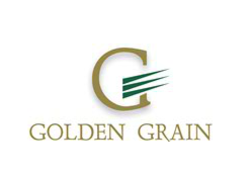Reuters | 21 May 2013

KHARTOUM: Lebanese farmland investor GLB Invest plans to invest up to $800 million in Sudan to produce animal feed to be sold to Saudi Arabia, its president said on Tuesday.
Arab investors have launched farmland and livestock projects in the vast African country, prized for its fertile soil and easy access to irrigation water from the Nile, to help arid Gulf oil producers secure food supplies.
Firas Badra, president of Beirut-based GLB Invest, said the firm had leased 78,000 hectares of land 130 km north of Khartoum to produce and export 40,000 tonnes annually of animal feed from January to Saudi Arabia.
"We are starting now with 40,000 tonnes for the time being and the project will have a maximum capacity of 750,000 tonnes by 2019," Badra told Reuters on the sidelines of an Arab food investment conference in the Sudanese capital.
"Next year we are going to reach 250,000 tonnes," he said. "Saudi Arabia is a market of 4 million tonnes."
The Sudanese pound has more than halved in value since South Sudan's secession in 2011 deprived Sudan of most oil production, the main source for dollars and state revenues.
 GLB had so far spent $200 million in Sudan and would increase investment up to between $750 million and $800 million by 2019, he said.
GLB had so far spent $200 million in Sudan and would increase investment up to between $750 million and $800 million by 2019, he said.
As a second project, GLB planned to plant 200,000 sun flower seeds which would be crushed to make sun flower oil to be sold inside Sudan, he said, adding that part of it would be exported to neighbouring countries.
He said the investment climate in Sudan was good despite central bank restrictions on repatriating profits in hard currency, a common complaint from foreign investors. "We can find solutions for that," he said.
The Sudanese pound has more than halved in value since South Sudan's secession in 2011 deprived the country of most oil production, the country's main source of dollars. (Reuters)

Sudanese police used tear gas and batons to break up a protest of more than 250 people in Khartoum in April 2013 demanding that the government revoke the sale of farming land to Gulf Arab investors (Photo: Reuters)
KHARTOUM: Lebanese farmland investor GLB Invest plans to invest up to $800 million in Sudan to produce animal feed to be sold to Saudi Arabia, its president said on Tuesday.
Arab investors have launched farmland and livestock projects in the vast African country, prized for its fertile soil and easy access to irrigation water from the Nile, to help arid Gulf oil producers secure food supplies.
Firas Badra, president of Beirut-based GLB Invest, said the firm had leased 78,000 hectares of land 130 km north of Khartoum to produce and export 40,000 tonnes annually of animal feed from January to Saudi Arabia.
"We are starting now with 40,000 tonnes for the time being and the project will have a maximum capacity of 750,000 tonnes by 2019," Badra told Reuters on the sidelines of an Arab food investment conference in the Sudanese capital.
"Next year we are going to reach 250,000 tonnes," he said. "Saudi Arabia is a market of 4 million tonnes."
The Sudanese pound has more than halved in value since South Sudan's secession in 2011 deprived Sudan of most oil production, the main source for dollars and state revenues.

GLB Invest is reported to be owned by FB Holding, which also owns Golden Grain, a major agricultural commodities trader based in Beirut.
As a second project, GLB planned to plant 200,000 sun flower seeds which would be crushed to make sun flower oil to be sold inside Sudan, he said, adding that part of it would be exported to neighbouring countries.
He said the investment climate in Sudan was good despite central bank restrictions on repatriating profits in hard currency, a common complaint from foreign investors. "We can find solutions for that," he said.
The Sudanese pound has more than halved in value since South Sudan's secession in 2011 deprived the country of most oil production, the country's main source of dollars. (Reuters)












